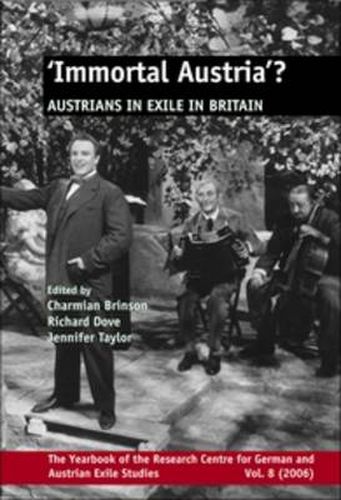Readings Newsletter
Become a Readings Member to make your shopping experience even easier.
Sign in or sign up for free!
You’re not far away from qualifying for FREE standard shipping within Australia
You’ve qualified for FREE standard shipping within Australia
The cart is loading…






Immortal Austria was the title of a theatrical pageant devised by Austrian refugees in wartime London, the name summarizing their collective memory of their homeland as a country of mountain scenery, historical grandeur and musical refinement. The reality of the country they had left, and the one to which some of them returned, was very different. This volume contains various studies of the representations of their homeland in the cultural production of Austrian exiles, including those projected by emigres working in the British film industry, those portrayed in the historical novel and in the literary works of such notable authors as Stefan Zweig, Elias Canetti and Robert Neumann. It opens with a survey of the make-up of the Austrian exile community and concludes with a study of attitudes to returning exiles, as reflected in the post-war literary journals. The volume thus offers students and teachers a vital cultural link between the pre-1934 Austria of the First Republic and the post-1945 Austria of the Second.
$9.00 standard shipping within Australia
FREE standard shipping within Australia for orders over $100.00
Express & International shipping calculated at checkout
Immortal Austria was the title of a theatrical pageant devised by Austrian refugees in wartime London, the name summarizing their collective memory of their homeland as a country of mountain scenery, historical grandeur and musical refinement. The reality of the country they had left, and the one to which some of them returned, was very different. This volume contains various studies of the representations of their homeland in the cultural production of Austrian exiles, including those projected by emigres working in the British film industry, those portrayed in the historical novel and in the literary works of such notable authors as Stefan Zweig, Elias Canetti and Robert Neumann. It opens with a survey of the make-up of the Austrian exile community and concludes with a study of attitudes to returning exiles, as reflected in the post-war literary journals. The volume thus offers students and teachers a vital cultural link between the pre-1934 Austria of the First Republic and the post-1945 Austria of the Second.